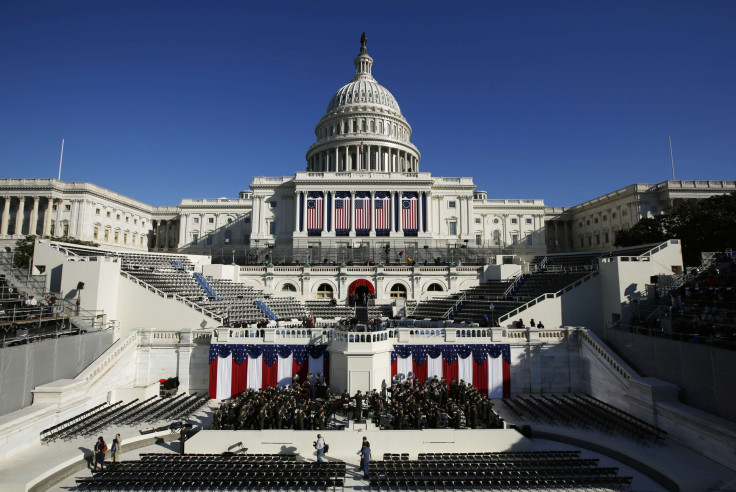2013 Presidential Inauguration Begins With National Day Of Service

President Barack Obama takes the oath of office for his second term Sunday at noon EST, in a private ceremony at the White House. A public swearing-in ceremony will be held Tuesday at noon EST in front of the U.S. Capitol.
Obama is being sworn in Sunday because Jan. 20 is the Constiutionally-mandated date for the president to be sworn in. Vice President Joe Biden took the oath of office for his second term Sunday at 8:12 a.m. EST, at the Naval Observatory.
Earlier, on Saturday President Obama’s inauguration festivites commenced with a National Day of Service, honoring civil rights leader the Rev. Martin Luther King, Jr., during which Obama called on Americans to volunteer.
The National Day of Service is a tradition that began four years ago. The president and first lady, Michelle Obama, are planning on doing their service in Washington on Saturday, while Vice President Joe Biden and his wife, Jill, were reportedly filling care packages for U.S. troops serving overseas.
For his 2013 inaugural address, Obama is expected to speak about the policies he will work on during his second term. The nation is currently facing fiscal battles in Congress that will require some measure cooperation from both Congress and the White House.
America hit its debt ceiling on Dec. 31 and is currently operating on temporary accounting adjustments. Raising the federal borrowing limit was a point of contention as the House GOP was firm that there must be spending cuts for ever dollar the debt ceiling is raised.
However, on Friday, House Republican backed away from that position (at least for now) and agreed to lift the federal government’s borrowing limit for three months. There is a requirement that both chambers of Congress pass a budget in that time, so long-term deficit reduction plans can begin. To motivate Congress to act on this issue, the debt ceiling legislation will include a provision preventing lawmakers from being paid if a budget blueprint isn’t outlined within three months.
It has been four years since the U.S. Senate approved a formal budget resolution. Instead, Congress has been relying heavily on “continuing resolutions,” or, simply put, stopgap-funding measures, to keep the U.S. government running.
© Copyright IBTimes 2024. All rights reserved.












